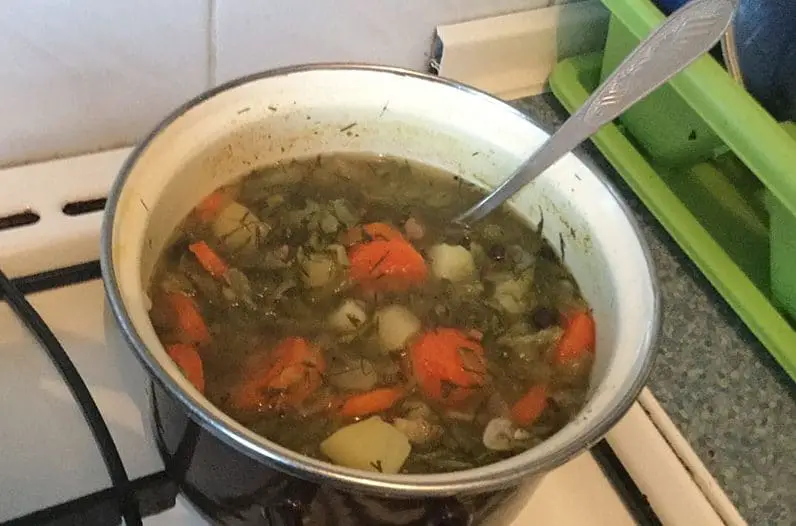Polish pickle soup is similar to pickle-based soups that can be found across the Slavic world. In Russia, for instance, soups like solyanka and rassolnik are popular. Solyanka, however, prides itself on stuffing as much and as many kinds of meat into the soup as possible. Rassolnik is much more similar to Polish pickle soup with the main difference being that rassolnik will almost always contain barley as an ingredient while Polish pickle soup does not. Thus, the Polish version can be confidently said to be one of the simplest variants of the Slavic pickle soup family.
Why is it called that?
(Dlaczego są tak nazwane?)
“Zupa ogorkowa” [pronounced zoopa ogurkova], or cucumber soup, is a traditional and popular Polish soup. “Zupa” means soup in Polish, and “ogorkowa” is the adjectival form of “ogórek,” which means “cucumber.” The soup is named after the soup’s main ingredient: “kiszone ogorki,” or pickled cucumbers.
When Do Poles Eat Pickle Soup?
(Kiedy Polacy jedzą zupę ogorkową?)
Traditional Polish meals always begin with a starter, soup being one of the most common. So, pickle soup would be served before the main course of the meal.
This is a “leftovers” soup for when hard and pickled goods need to be used up in the house: the broth is traditionally made from left-over meat bones, and the other ingredients — potatoes, carrots, onion, garlic, pickled cucumbers and dill — can be stored to last quite some time.
Like many Slavic soups, pickle soup is usually served with a side of sour cream, kefir, or plain yogurt that can be added to the soup to make it richer and creamer (as is also typical with barszcz czerwony – red borscht).
How Do You Properly Cook Pickle Soup?
(Jak odpowiednio ugotować zupę ogorkową?)
As long as you follow the directions, this is a really easy and quick soup to cook. If making it with meat bones, make sure to boil the meat bones to create a base broth (I am sure a vegetable broth would work well too). If no old meat bones are to be had, just use some fried bacon or, really, any other type of meat to create a base broth.
Let’s Cook!
(Gotujmy!)
See below for a free recipe for “paczki.” See also the free videos online. If you are interested in cooking from Russia, Ukraine, Georgia, Poland, and other places in Eurasia, make sure to see see our other resources! You might also be interested in the following specialized cookbooks we’ve enjoyed:
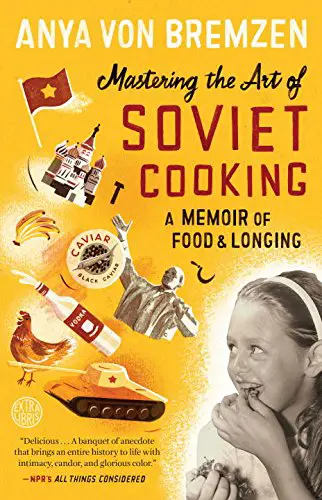 |
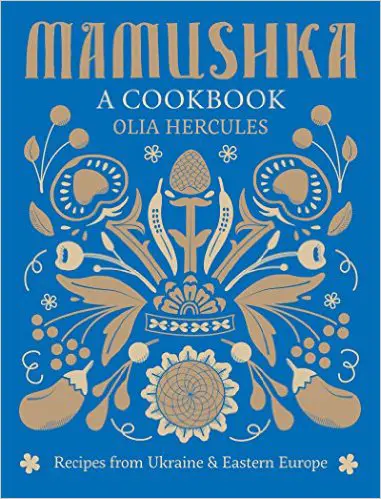 |
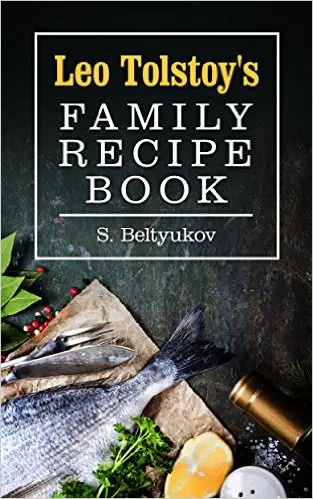 |
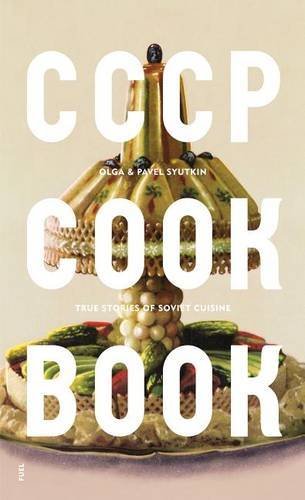 |
| Zupa Ogorkowa | Polish Pickle Soup |
Składniki:
Przygotowanie:
|
Ingredients
Preparation
|
Our Favorite Polish Pickle Soup Videos
This video, in English by a Polish woman, shows step-by-step how to make pickle soup.
This video, in fairly slow, clear Polish, also shows and names each ingredient and step in the process.
This video shows two poles making the soup together and conversing in Polish while they do so.
You Might Also Like
The Talking Phrasebook Series presents useful phrases and words in side-by-side translation and with audio files specifically geared to help students work on listening skills and pronunciation. Each entry below, divided by category, features an English word or phrase in the left column and its Polish translation in the right. In the center column for […] Polish food is hearty, flavorful, and deeply rooted in tradition. It is also experiencing a revival, re-inventing itself in major Polish cities as the country celebrates its heritage and embraces the latest trends and inspirations from world cuisines. Today, while dishes like pierogi, kielbasa, and bigos (hunter’s stew) are one you must try while visiting […] Rites of welcoming spring and saying goodbye to winter are some of the oldest holidays preserved across Slavic cultures. In the Baltics, the celebrations were nearly lost after being suppressed by Catholic and imperial dominance. Today, Russia’s Maslenitsa is by the far the best-known, but multiple versions exist across the diverse Slavic landscape. In the […] The dumplings and pastries of Europe’s northeastern flank have a story to tell. Their recipes, etymologies, and related traditions are intertwined in a complex historical knot. There are so many ancient connections that it is almost impossible to say which influenced the next. And yet, each dish is held up as a unique and integral […] Polish holidays are heavily steeped in Catholic tradtion. They all have a distinctly Polish flair to them, however, in their foods, colors, and celebrations. Note that in Poland nearly everything closes for public holidays! Everyone will be celebrating! Find out more about Polish holidays, their history, cultural significance, and related days off below. Days Off […]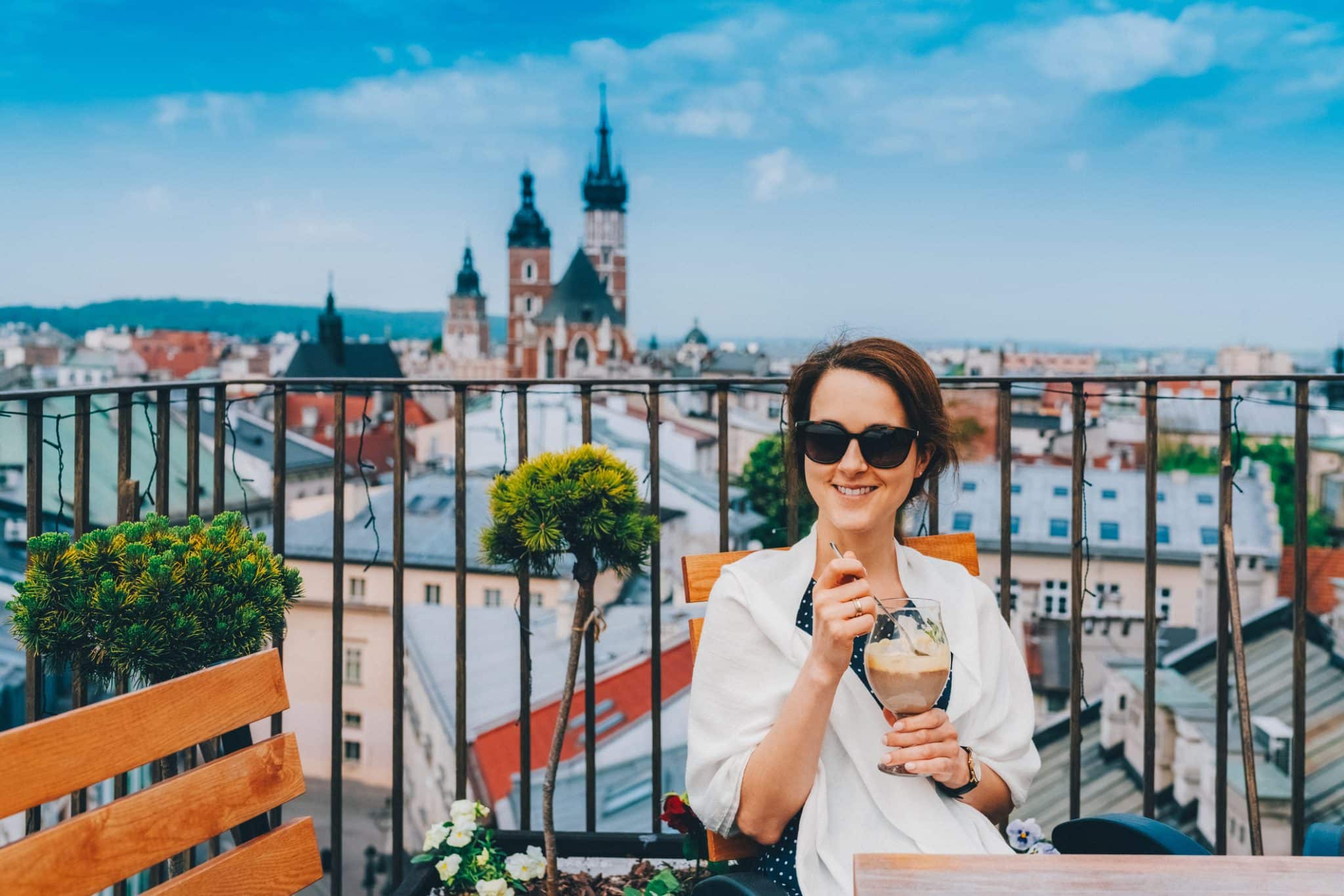
The Talking Polish Phrasebook
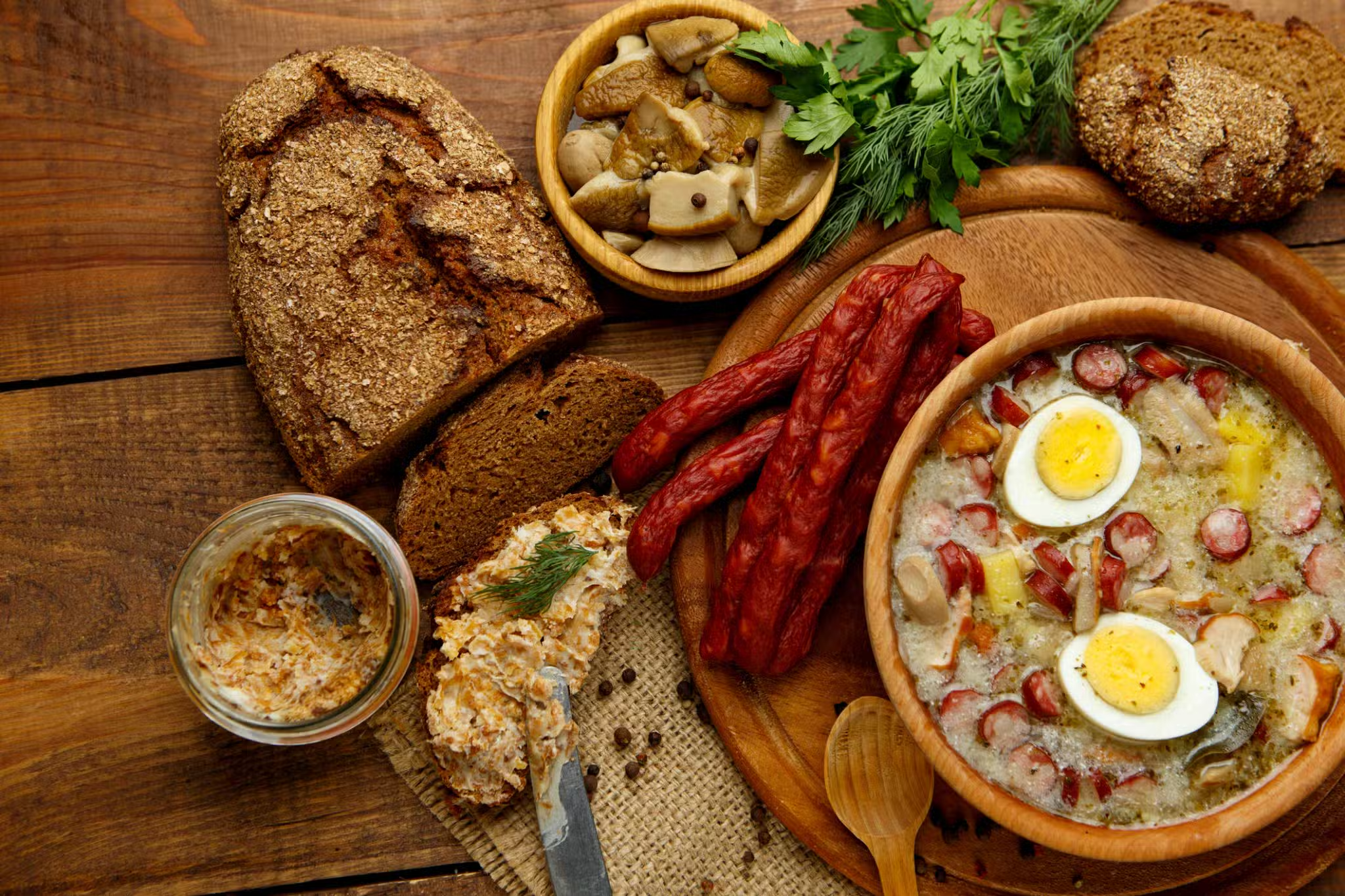
Dictionary of Polish Food
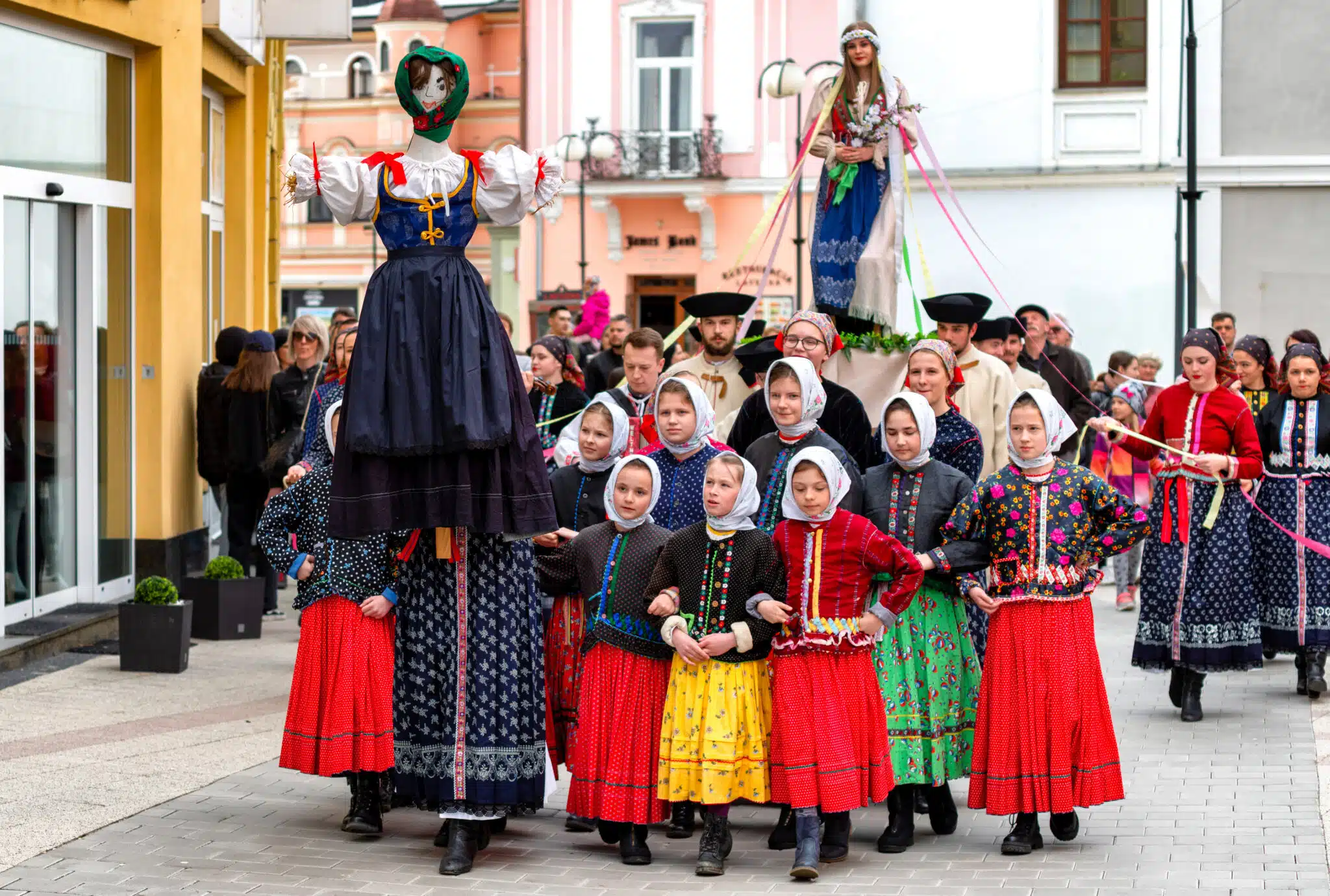
Maslenitsa, Masliana, Meteņi: Spring Holidays of the Slavs and Balts
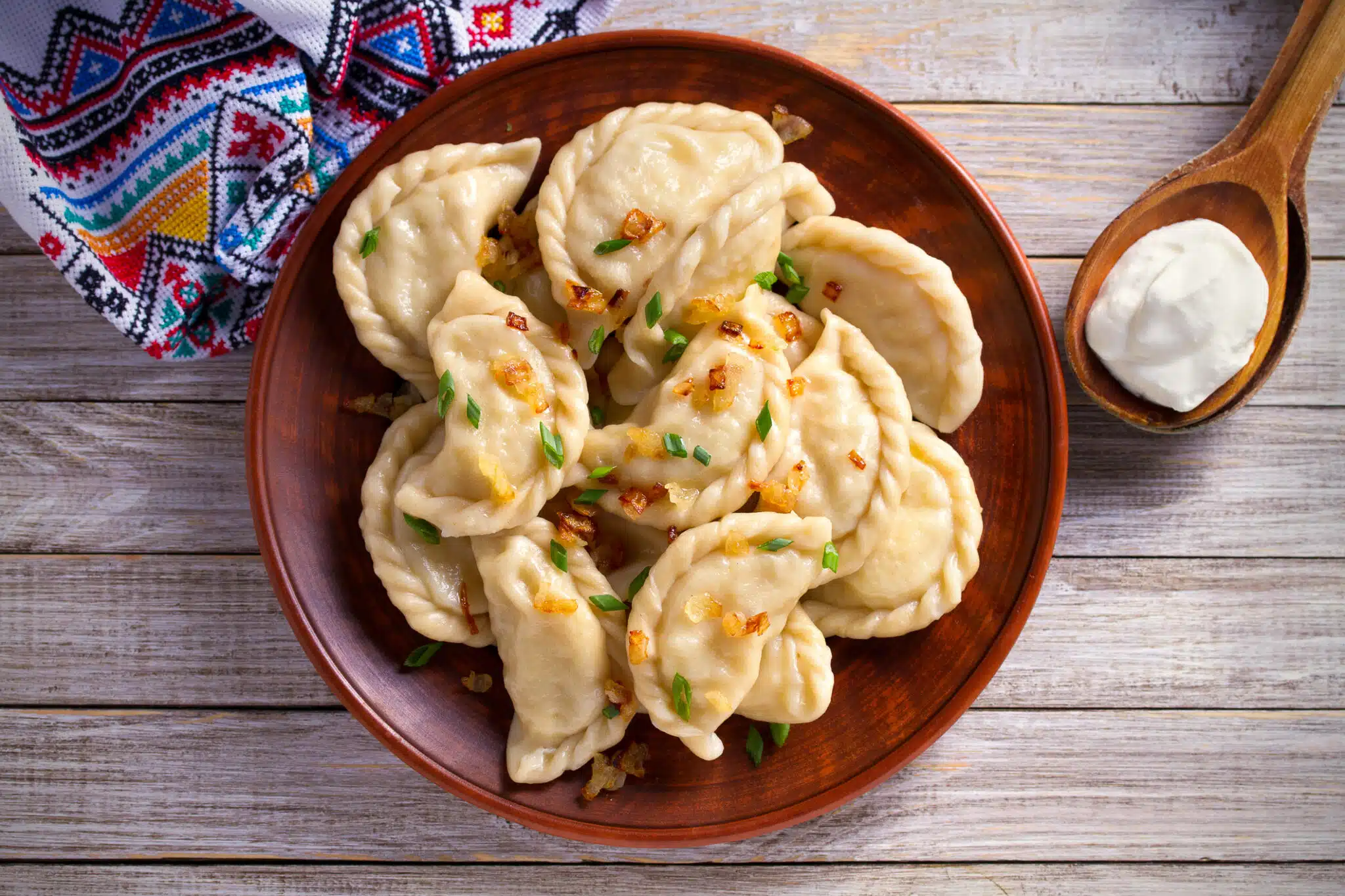
Pierogi, Pīrāgi, Varenyky: A Tour of Pastries and Dumplings
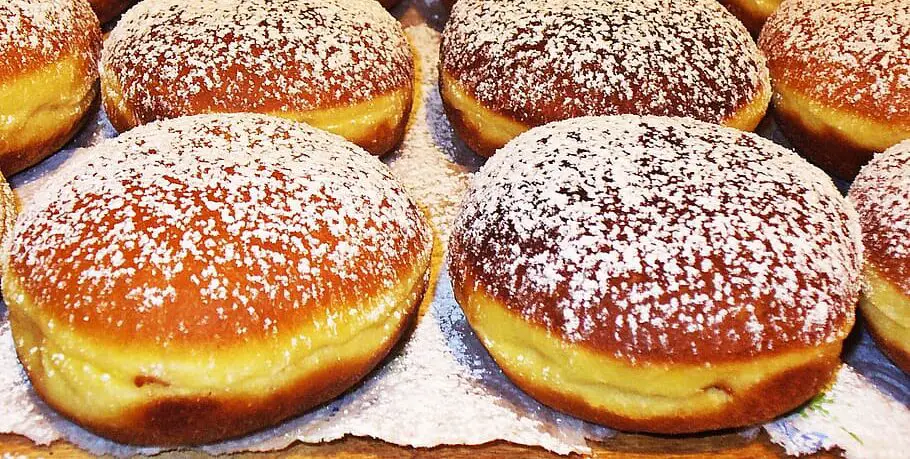
Polish Holidays 2025: A Complete Guide

